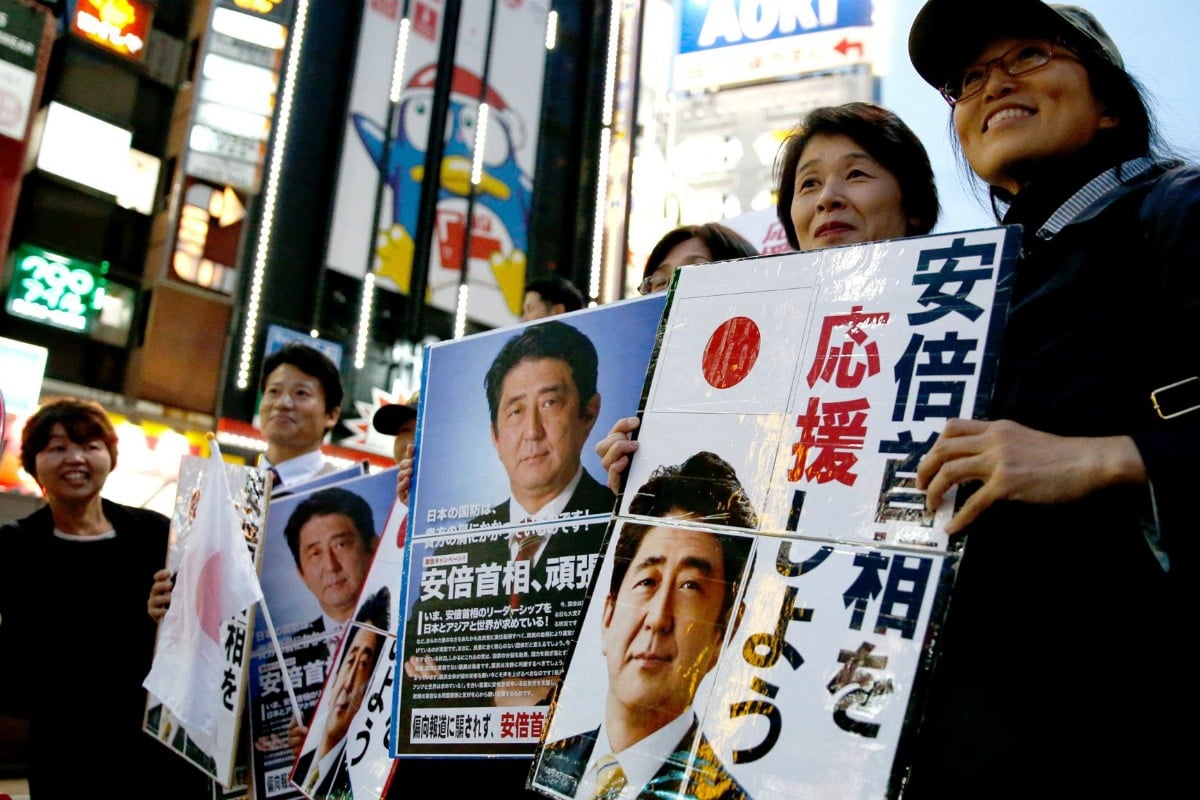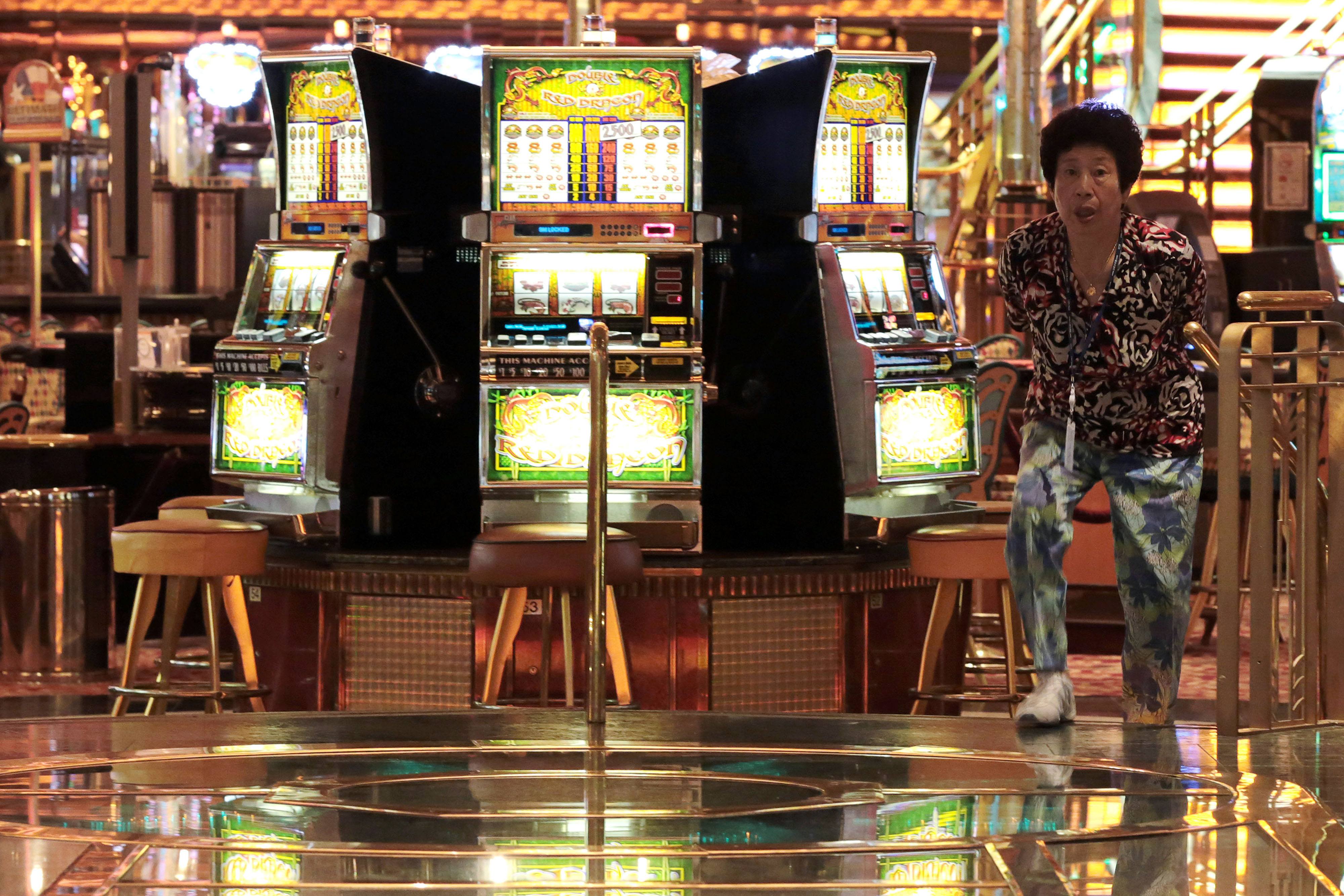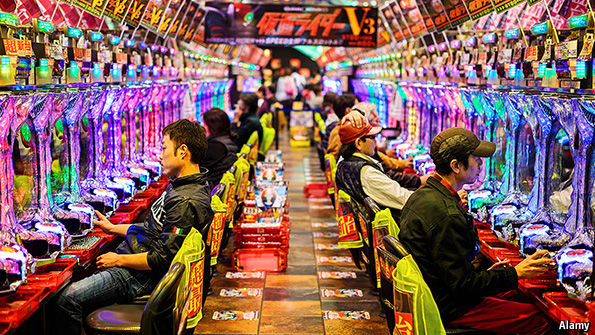Casino Legal In Japan
Most forms of gambling in Japan are generally banned by the Criminal Code chapter 23;[1] however, there are several exceptions, including betting on horse racing and certain motor sports.[2]

On July 20, 2018, the Act to Implement Specified Integrated Resort Areas (the “Casino Implementation Act”) passed the Japanese Diet which legalized gambling to be operated by private entities in Japan. Japan is a country in East Asia with legal gambling. There are 23 cities with gambling facilities in Japan which have 25 legal gambling facilities available in total. The types of gambling available in Japan are: casinos, horseracing tracks. The largest gambling city in Japan is Funabashi with 2 gambling facilities. Japanese pachinko billionaire, Kazuo Okada of Universal Entertainment, and Sega Sammy Holdings Inc, chair and president Hajime Satomi, expressed interest in operating casinos as early as 2012, with Satomi looking to Seagaia water park and resort for his project then. Others will undoubtedly emerge now that casinos are finally legal in Japan. Since 2018, casino operators have been bidding for three legal licenses to operate an integrated casino resort in Japan, including in Osaka, Tokyo, and Yokohama. The Japanese government established the Casino Administration Committee in 2020 to supervise and manage Japan's resort operators. Japan has no casinos. The Penal Code of Japan states that a person who runs a for-profit gambling establishment is punishable by imprisonment for three months to five years. (PENAL CODE, Act No. 45 of 1907, as amended by Act No. 72 of 2017, art. 2, Japanese Law Translation website.).
Public sports, lottery, and toto (football pools) are held under special laws in order to increase the income of national and local governments, as well as to offer a form of entertainment.

Since 2018, casino operators have been bidding for three legal licenses to operate an integrated casino resort in Japan, including in Osaka, Tokyo, and Yokohama. The Japanese government established the Casino Administration Committee in 2020 to supervise and manage Japan's resort operators.
A number of fictional franchises focus on gambling in Japan.
Public sports[edit]
Kōei kyōgi (Japanese: 公営競技, public sports) are public races that can be gambled on legally. There are four types: horse racing, bicycle racing, powerboat racing, and asphalt speedway motorcycle racing. They are allowed by special laws and are regulated by local governments or governmental corporations.
The prize pool for gamblers on these races are about 75-80% of total sales. Betting tickets are available at numerous circuits and ticket booths within many cities.
Lottery[edit]
Takarakuji (Japanese: 宝くじ), i.e., lotteries, are held by prefectures or large cities on a regular basis all throughout the calendar year.
There are three main types of lotteries: unique number lotteries, selected number lotteries, and scratch cards. Each lottery ticket is sold at 100 to 500 yen, and the top cash prizes are usually 100 million yen or more.
The takarakuji law stipulates that the entire prize pool for any given lottery is to be less than 50% of total sales, with the rest going to local government organizations and charities.
Takarakuji tickets are available at takarakuji booth and stores in many cities, with some outlets becoming particularly popular.[3] Tickets for selected number lotteries can be also bought at some ATMs.
Pachinko[edit]
Pachinko is a pinball-like slot machine game. It is officially not considered gambling because Japanese laws regard pachinko as an exception to the criminal code on gambling for historical, monetary, and cultural reasons. Pachinko parlors can be found all over Japan, and they are operated by private companies. As of 2011, there are about 12,480 pachinko parlors in Japan.[4] In 2018, Japan spent $200 billion on pachinko each year. Also, 'nearly half of all leisure time in Japan' was spent in pachinko parlors.[5]
In pachinko, when a player's ball makes it into a special hole to activate the slot machine and a jackpot is made, they are rewarded with more balls. Players can then exchange the balls for prizes of different value at a booth in the parlor. Money cannot be awarded at pachinko parlors as this would be in violation of the criminal code. However, players almost always exchange pachinko balls for special tokens, usually slips of gold encased in plastic, and then 'sell' them at a neighboring shop for cash. Usually such shops are also owned by the parlor operators, but as long as the winners do not receive cash in the parlor, the law is not broken.[6]
On April 4, 2011, Shintaro Ishihara, the previous Tokyo Governor, spoke against the pachinko parlors, arguing that the popular game together with vending machines were wasting electricity, at 'nearly 10 million kilowatts of energy [sic]'. He said that following the consequences the earthquake of March 11, 2011, the government asked people to reduce energy consumption, but asking wasn't enough and the government order was not enacted.[7] In 2016, the Parliament voted to approve the said law that will eventually alter the gambling industry in Japan.[7][8]
Illegal gambling[edit]
Yakuza are known to operate illegal casinos in Japan. In addition to traditional casino games, Mahjong can be played for money and many mahjong parlors have ties with the Yakuza to assist collecting debt from players who default.
Another illegal gambling opportunity is offered by mobile gambling sites. At these sites, Japanese gamblers can play rock-paper-scissors and win cash prizes. In 2010, the owner of one of these sites was arrested and confessed to earning over $1 million. The players purchased betting tickets for ¥315. They could win ¥1,000 if they won three times in a row while ¥10,000 was the prize for those who won five times in a row.[9]
Casinos[edit]
Efforts to legalize[edit]
There were movements within the Liberal Democratic Party (LDP) government to open casinos to boost tourism in Japan.[10] Operating casinos remains illegal in Japan, and recent sports betting on baseball by sumo wrestlers has caused a scandal.[2]
In 2000, former mayor Ishihara proposed building casinos in Odaiba, but despite the high public interest, the idea wasn't entirely approved. One of the arguments against the developments was that the Japanese being not used to gambling would be too prone to addiction.[11] Another possibility for the development of the casino industry in Japan is the creation of floating casinos. The idea of boat gambling has also been actively supported by Ishihara.[12]
Casino legislation in Japan picked up fresh momentum with lawmakers submitting the Integrated Resort (IR) Enabling Act to the Diet in 2015.[13]
Legalization and bidding[edit]
In July 2018, Japanese lawmakers approved a bill that officially allows casinos in the country. Three casinos in the form of integrated resorts (IRs) will be established in different locations. The IRs will come with restrictions and Japanese locals will only be able to visit the casinos three times per week, or ten times a month. Japanese visitors will also be charged a 6,000 yen entrance fee to help discourage addiction.[14]
Osaka was the first to launch the “Request For Proposal” (RFP) process in 2019,[15] and the five companies who applied for an Osaka integrated casino resort license are Las Vegas Sands, Wynn Resorts, MGM Resorts, Melco Resorts, and Genting Singapore.[16] Names of two gambling operators were not revealed as they had requested anonymity.[17] In February 2020 only MGM Resorts had submitted a bid in Osaka, with no bids put in by competing companies Galaxy Entertainment and Genting Singapore.[18] MGM was awarded the contract. Las Vegas Sands, Melco Resorts and Entertainment and Wynn Resorts all said they were instead focusing on Yokohama and Tokyo and the bidding processes there, for the remaining two licenses.[19][18]
On May 13, 2020, Las Vegas Sands recalled its bid to open an IR in Japan amid postponment of the Tokyo 2020 Olympics and global coronavirus epidemic.[20]
Casino Administration Committee[edit]
The Japanese government established the Casino Administration Committee on January 7, 2020. Intended to supervise and manage Japan's IR operators, it operates as an external department to the cabinet. The chairman is Michio Katamura. It will grant casino licenses and also be able to revoke them, and investigate operators and related officers.[21]
Media depictions[edit]
Gambling is the central theme of many Japanese fictional works, including manga, anime, film, and literature. Examples of gambling franchises include Kakegurui (Compulsive Gambler), Gambling Apocalypse: Kaiji, Usogui, Akagi, Legendary Gambler Tetsuya, Liar Game, Mahjong Hishō-den: Naki no Ryū, One Outs, Rio: Rainbow Gate!, and Tobaku Haōden Zero.
See also[edit]
References[edit]
- ^(in English)Criminal Code of Japan PDF
- ^ ab'Japan's sumo supremo replaced'. AFP. Aug 12, 2010. Retrieved 5 September 2010.
- ^Takarakuji: What's chance got to do with it?, The Japan Times
- ^Gov. sparks pachinko bashing
- ^Japan's pinball gambling industry rakes in 30 times more cash than Las Vegas casinos, Business Insider
- ^Playing Pachinko: How Illegal Gambling Is Legal in Japan
- ^ ab'Top Gambling players from Japan'. Retrieved 2013-05-09.
- ^Tokyo Governor Takes Aim at Vending Machines, Pachinko
- ^'Gambling in Japan: Gambling in Japan: Bicycles, Boats and Horse Racing'. Archived from the original on 2011-02-02. Retrieved 2011-11-08.
- ^LDPdiscussion about casinos in 2006Archived 2008-01-09 at the Wayback Machine
- ^Viva Odaiba! Ishihara dreams of casinos in the bay
- ^'Racism in Japan: Racism as a Business Defence'. Archived from the original on 2013-01-03. Retrieved 2011-11-08.
- ^Japan casino legalisation bill delayed again in latest blow, Reuters
- ^'Japan's Diet approves opening of casino resorts despite opposition'. The Mainichi. July 20, 2018. Retrieved July 23, 2018.
- ^Osaka Begins Taking Applications for Integrated Resort Proposals Casino.org
- ^The Race for a Japan Casino License Is Now MGM Resorts' to Lose, NASDAQ
- ^Names of five casino firms in Osaka RFC phase revealed, ggrasia.com
- ^ abMGM Resorts Last Competitor Standing in Osaka Integrated Resort Competition, Casino.org
- ^Osaka closes on IR partner following drop-outs
- ^Las Vegas Sands scraps plans for Japan integrated resort casino project, Reuters
- ^Japan formally establishes Casino Administration Committee
The topic of gambling in Japan is taboo—or at least it has been since the early 20th century, when it was officially outlawed in Japan. The tide is turning, however, with the full legalization of gambling and casinos in Japan practically imminent (at least until Covid-19 shut down tourism to Japan—more on that in a second).
That’s the good news, if you’re an avid gambler. The bad news? It’s still not clear precisely when casinos in Japan will become commonplace, or when the full legalization of gambling will go into effect.
Casino Legal In Japanese

For now, assuming you don’t get your gambling fix with casinos such as 1xbet, continue reading to learn about ways of betting and gaming in Japan that are currently legal right now.

Gambling in Japan: A History
Officially speaking, gambling in Japan has been illegal since 1907, near the end of the Meiji era. During this time, of course, many “unofficial” casinos have popped up in Tokyo and outside the capital, largely run by or connected the Yakuza, a notorious criminal organization in Japan. While entering into one of these casinos would rarely get you into trouble with the police, you’d need to watch your back no less.
In 2016, seemingly out of nowhere, the Japanese government passed a law that would make gambling legal in the future. That’s the (sort of) good news. Unfortunately for travelers to Japan who like to gamble, you’ll need to wait a bit longer. It looks unlikely that Japan’s initial round of casinos will open before the delayed 2021 Olympics, and some speculate that we’ll need to wait as long as 2025, when the World Expo comes to Osaka.
Legal Types of Gambling in Japan
Pachinko
It’s difficult to walk in any Japanese city and not notice pachinko parlors, which are the closest thing to casinos that currently exist in Japan. As far as what pachinko is? They’re essentially slot machines. However, you don’t get paid in cash when you win. Rather, in order to get around Japan’s strict gambling laws, pachinko parlors issue you a voucher, which you can use to purchase goods for sale on the premises.
Lottery
Want some lighter, and more casual gambling in Japan? Consider buying a lottery ticket, which you can do at a convenience store as you would in the US or Canada. Even more simply, lottery in Japan is often simply a matter of scratching off a ticket, so there’s basically nothing to it. Just grab a coin (I find a ¥100 works the best), find a flat surface, make a wish and scratch away. What’s the worst that can happen?
Bingo
Theoretically, bingo doesn’t exist in Japan, but in reality it’s possible to find underground games, both those run by the Yakuza and smaller games (with smaller payouts, of course), which take place inside people’s homes. This isn’t the easiest way to enjoy gambling in Japan, nor is it the most lucrative for the majority of visitors the country, but since you’re likely to be familiar with the rules of the game, it can be a comfortable choice.
Racing
Prefer straight betting to playing a game inside a casino? Then you’re in luck—bets on racing in Japan are legal, and can be a very good return on investment. Whether you prefer to bet during a horse racing match, a bicycle or car race, or even on boats as they speed through the waters off the coast of Japan, place your bet and hope your horse (or car, or bike, or boat wins). Until Japanese casinos start opening in the future, this is one of your only opportunities to gamble.
Online Gambling in Japan
Is Casino Gambling Legal In Japan
Is online gambling legal in Japan? The answer isn’t as simple as “yes” or “no.” While laws that ban physical casinos in Japan are very explicit, those relating to gambling of the virtual sort are surprisingly ambiguous. (Or maybe it’s not so surprising. After all, up until a few years ago, foreign visitors to Japan were not even allowed to buy Japanese data SIM cards upon arrival at the airport!)
The great news, of course, when it comes to online Japanese casinos, is that you don’t actually need to be in Japan to enjoy them. If you’re traveling in Japan, conversely, it’s unlikely that you’re going to want to be sitting on your computer gambling while you could be out exploring. (Or enjoying machine games in a pachinko parlor, since that may well be the sort of thing you prefer if you’re reading this article.)
FAQ About Gambling in Japan
When was gambling banned in Japan?
Gambling in Japan has been illegal since 1907. Given the indefinite delay on casino resorts in Japan, the answer to the question “is gambling illegal in Japan?” will remain “yes” for the foreseeable future.
What sports can you gamble on in Japan?
Racing bets are one of the only legal forms of gambling in Japan. Although some people bet on other sports, notably sumo, this is illegal—I certainly don’t recommend it.
Can foreigners play pachinko?
Foreigners can play pachinko. The problem is that since you don’t win “real” money playing pachinko, you may or may not be able to redeem your voucher if you aren’t a resident. Is gambling legal in Japan? It’s complicated.
The Impact of Covid-19 on Casinos in Japan
The bad news? The collapse of inbound tourism to Japan in the wake of the coronavirus pandemic has complicated the development of so-called “Integrated Resorts” with casinos, the first of which were supposed to open just after the 2020 Olympics. The worse news? The surprise August 2020 resignation of long-serving Japanese Prime Minister Shinzo Abe makes the future of these resorts even more precarious, even if tourism to Japan somehow bounces back big in 2021.
The Bottom Line
Although gambling in Japan is still not fully legal as of September 2020, changes to the century-old law regarding betting and gaming are on the horizon. Moreover, there are plenty of already legal ways you can get your betting fix on your next trip to Japan, whether you stop into a pachinko parlor, or place bets on a horse, bicycle, boat or even a car. Make sure and stay aware of news regarding gambling laws in Japan, particularly as the 2021 Tokyo Olympics approach. And may the odds be always in your favor!
Japan Starts Here is information—and inspiration—for all your trips to Japan. My name is Robert and I'm happy you're here!